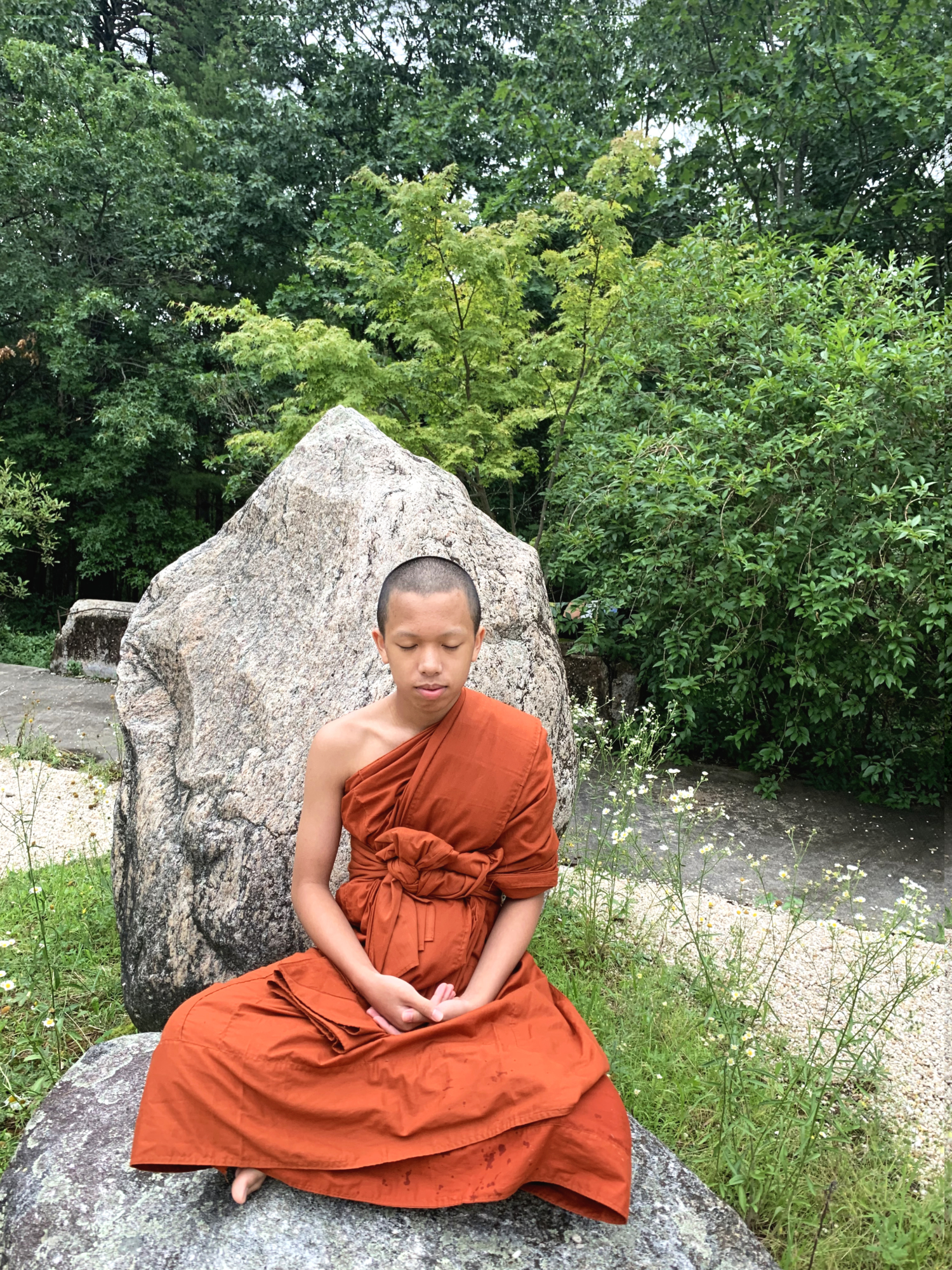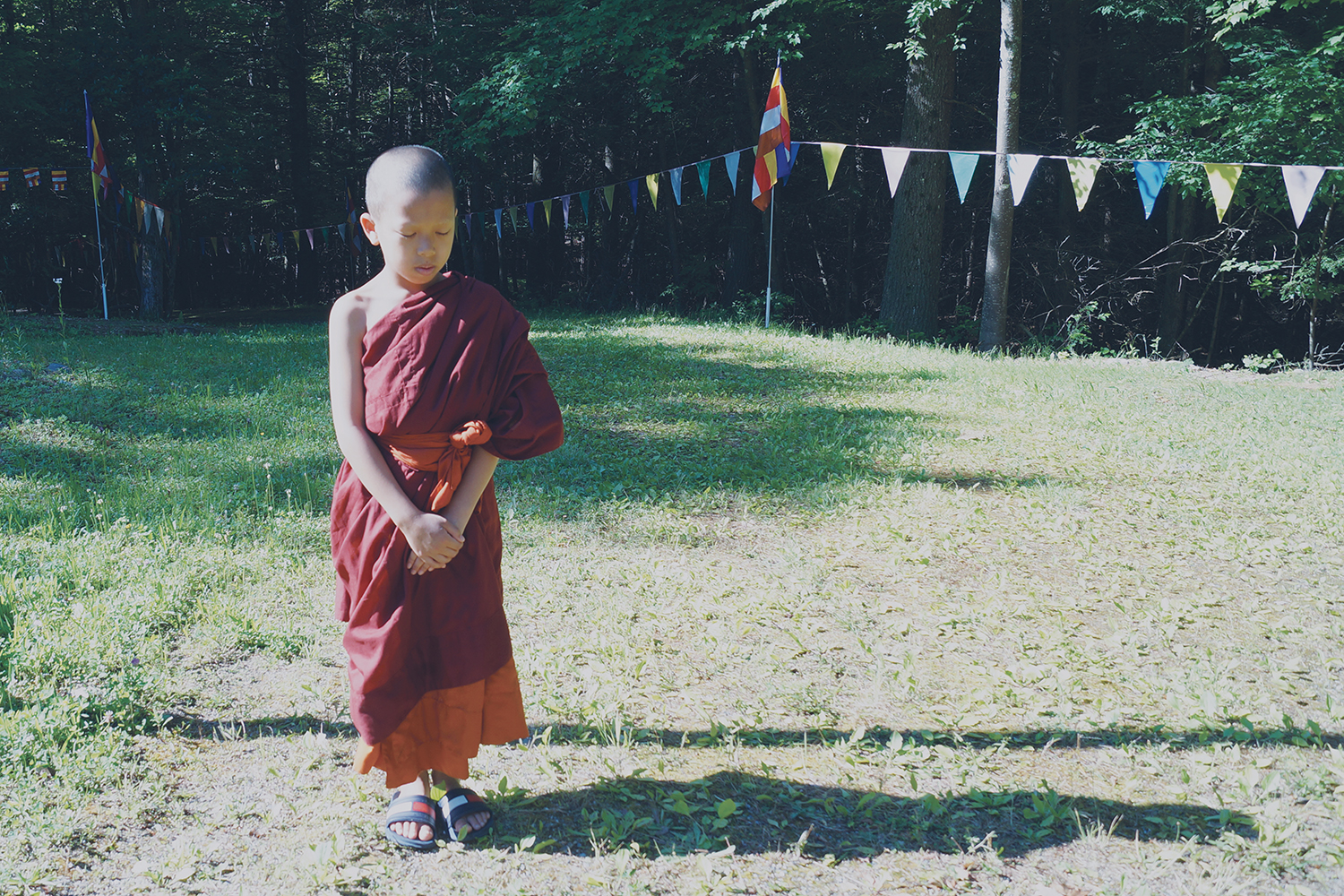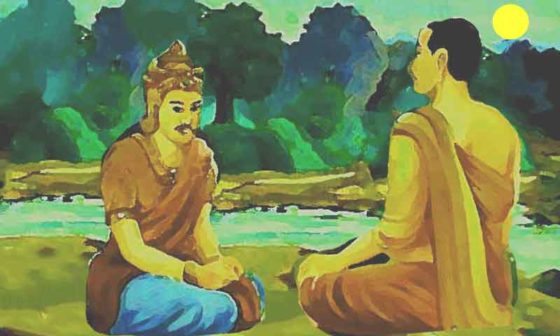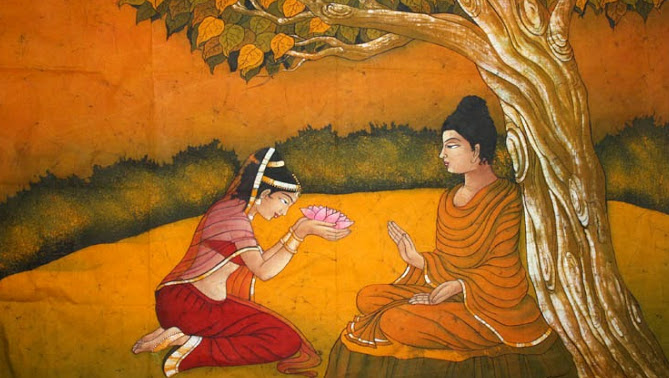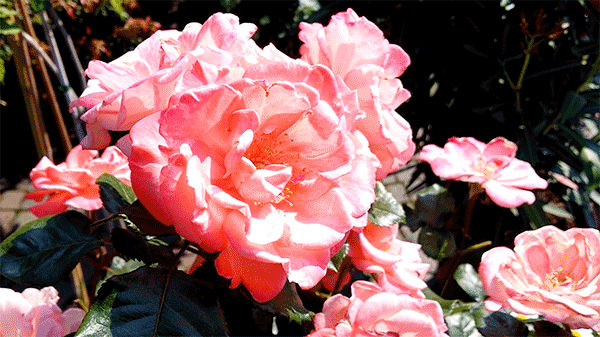Pakinnakavagga: Miscellaneous
- If by renouncing a lesser happiness one may realize a greater happiness, let the wise man renounce the lesser, having regard for the greater.
-
Entangled by the bonds of hate, he who seeks his own happiness by inflicting pain on others, is never delivered from hatred.
-
The cankers only increase for those who are arrogant and heedless, who leave undone what should be done and do what should not be done.
-
The cankers cease for those mindful and clearly comprehending ones who always earnestly practice mindfulness of the body, who do not resort to what should not be done, and steadfastly pursue what should be done.
-
Having slain mother (craving), father (self-conceit), two warrior-kings (eternalism and nihilism), and destroyed a country (sense organs and sense objects) together with its treasurer (attachment and lust), ungrieving goes the holy man.
-
Having slain mother, father, two brahman kings (two extreme views), and a tiger as the fifth (the five mental hindrances), ungrieving goes the holy man.
-
Those disciples of Gotama ever awaken happily who day and night constantly practice the Recollection of the Qualities of the Buddha. Continue reading



